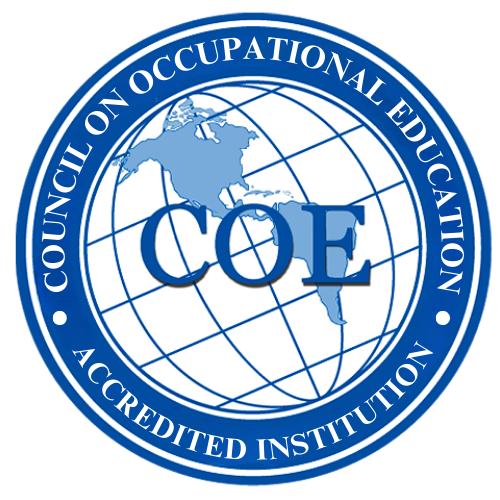When you think of having a career in the healthcare field, what comes to mind? Most likely a nurse or doctor, right? Well, if you prefer to work in a lowkey setting, you’d probably love a medical office job. Two of the most common positions are medical billing and medical coding.
If you’re confused about the differences between medical billing vs. medical coding, you’re not alone. Understanding these two essential components of the healthcare industry is challenging, but we’re here to help.
Medical billing and coding are often used interchangeably, but they play distinct roles. With the ever-evolving medical landscape, it’s crucial to have a clear understanding of these processes. Whether you’re a student, or simply curious about the field, this article will provide the knowledge needed to navigate this type of healthcare job.
So, get ready to unlock the secrets behind these vital components of the medical industry!
The Role of Medical Billing in Healthcare
Medical billers ensure that healthcare providers receive reimbursement for the services they provide. It involves the submission of claims to insurance companies or self-pay patients. Without proper billing, healthcare facilities would struggle to stay financially afloat.
One of the primary responsibilities of medical billers is to accurately translate the healthcare services into billing codes. These codes are used to determine the appropriate charges for each procedure, diagnosis, or treatment. The biller must understand the intricacies of insurance policies and reimbursement rates.
Medical billers also handle the administrative tasks associated with billing. They verify insurance coverage, obtain pre-authorization for procedures, and follow up on unpaid claims. Their duty is to act as a liaison between healthcare providers, insurance companies, and patients. Doing so ensures a smooth flow of information and timely payment.
It’s important to note that medical billers should be well-versed in medical terminology, coding systems, and billing software. They must stay updated on the ever-changing regulations set by insurance companies and government programs. If not, they could run into claim denials and payment delays.
The Role of Medical Coding in Healthcare
Medical billing focuses on translating healthcare services into financial transactions. On the other hand, medical coding is responsible for translating the details of those services into standardized codes. These codes are used to communicate essential information about diagnoses, procedures, and treatments across the healthcare industry.
Medical coders use coding systems, like the International Classification of Diseases (ICD). The also utilize Current Procedural Terminology (CPT) to assign the appropriate codes to medical records. These codes serve as a universal language that allows healthcare and insurance providers to understand the nature of the services rendered.
Accurate medical coding is crucial for several reasons. For starters, it ensures proper reimbursement for healthcare services by providing detailed information about the procedures performed. It also facilitates data analysis and research, since coded medical records can be used to identify trends. The records also evaluate treatment outcomes and improve healthcare practices.
Medical coders need to have a solid understanding of anatomy and medical terminology to accurately assign codes. They must be aware of the latest coding regulations to ensure compliance and minimize coding errors. Additionally, attention to detail and analytical skills are crucial to excel in this field.
The Differences Between Medical Billing vs. Medical Coding
While medical billing and medical coding are closely related, they diifer. The key contrasts between the two are summarized as follows:
Purpose
Medical coding’s primary purpose is to translate healthcare services into standardized codes, while medical billing focuses on processing insurance claims and obtaining reimbursement for those services.
Skills
Medical coding requires a deep understanding of anatomy, medical terminology, and coding systems. However, medical billing requires knowledge of insurance policies, reimbursement rates, and billing software.
Output
Medical coding produces coded medical records that communicate important clinical information. On the contrary, medical billing generates claims and invoices for payment.
Responsibilities
Medical coders assign the appropriate codes to medical records. Doing so ensures accurate representation of diagnoses and treatments. Medical billers handle insurance verification, claim submission, and follow-up.
Understanding these differences is crucial for healthcare professionals, as it helps streamline workflow and improve overall efficiency in healthcare settings.
The Importance of Accurate Medical Billing and Coding
Accurate medical billing and coding are vital. It directly impacts the financial viability of healthcare providers and the quality of patient care. Here are some reasons why precision in these processes is essential:
Reimbursement
Precise coding and billing ensure that healthcare providers receive proper reimbursement for services. Errors or omissions in coding could lead to claim denials or payment delays. These issues affecr the financial stability of healthcare facilities.
Compliance
Proper coding and billing practices ensure compliance with insurance policies, government regulations, and coding guidelines. Non-compliance can result in penalties or legal consequences.
Data Analysis and Research
Coded medical records provide valuable data for research, population health management, and healthcare analytics. Accurate coding allows for precise data analysis, leading to improved healthcare practices and outcomes.
Patient Safety
Correct coding guarantees that the correct diagnoses, procedures, and treatments are documented. This promotes patient safety and prevents medical errors.
To ensure accuracy in billing and coding, healthcare facilities must invest in training and routine audits. Continuous education and professional development are also crucial for medical coders and billers.
Education Requirements for Medical Billing and Coding
Professionals in medical billing and coding typically undergo specialized training. Once completed, they obtain certifications to demonstrate their competence. While formal education is not always required, it can significantly enhance job prospects and career advancement opportunities.
Medical coding training varies in length and format. It can range from short-term certificates to associate or bachelor’s degree programs. The same goes for medical billing.
In addition to formal education, certification is highly valued in the medical billing and coding field.These certifications require passing an examination and demonstrate proficiency in coding or billing practices.
Certifications not only validate an individual’s knowledge, but also indicates a commitment to professional growth and adherence. This increases earning potential and open doors to specialized roles within the field.
Career Opportunities in Medical Billing and Coding
The demand for skilled medical coders and billers continues to grow as the healthcare industry expands. Below are some potential career paths:
Medical Coder
Medical coders are responsible for assigning codes to medical records in hospitals, clinics, and insurance companies. They ensure proper representation of diagnoses, procedures, and treatments.
Medical Biller
Medical billers handle the administrative tasks associated with billing. As previously mentioned, they handle claim submission, insurance verification, and payment follow-up.
Coding Auditor
Coding auditors review coded medical records to ensure accuracy, compliance, and adherence to coding guidelines. They play a crucial role in quality assurance and risk management.
Coding Educator
Coding educators train students on coding guidelines, regulations, and best practices. Their job is to make sure that all educational requirements are met.
Medical Billing Manager
Medical billing managers oversee all billing operations. Their duty is to manage billing staff and ensure timely reimbursement for healthcare services.
Consultant
Experienced medical coders or billers can work as consultants. They provide expertise and guidance to healthcare industry.
These are just a few examples of the diverse career paths available in medical billing and coding. The field offers opportunities for growth, making it an attractive option for those pursuing a career in healthcare administration.
The Medical Billing vs. Medical Coding Salary
In terms of salary, both medical billing and medical coding professionals can expect to earn competitive wages. According to the Bureau of Labor Statistics, the median annual wage for medical records was $47,180 as of 2022. Billing and coding professionals are included under the umberella of medical records.
It’s worth noting that salaries can vary depending on experience, education, geographic location, and employer. In some cases, medical billing professionals may earn slightly higher salaries than their coding counterparts. This may be due to the fact that medical billing requires more direct interaction with insurance companies.
Challenges in Medical Billing and Coding
While medical billing and coding are essential components of the healthcare industry, they come with their fair share of challenges and misconceptions, which include:
Coding Accuracy
Coding accuracy is crucial for proper reimbursement and patient care. However, the subjective nature of coding and the constant evolution of medical practices pose challenges in achieving consistent coding accuracy.
Audits and Compliance
Healthcare facilities face regular audits from insurance companies, government agencies, or external organizations. Maintaining compliance and navigating audits can be time-consuming and stressful.
Technological Advances
The healthcare industry is witnessing rapid technological advancements, like electronic health records (EHR) and artificial intelligence (AI). Medical coders and billers need to adapt to new systems and technologies to stay relevant.
Start Your Billing and Coding Career
We hope that this article helped you to understand the contrasts between medical billing vs. medical coding. Both options provide stable, fulfilling careers.
If you’re ready to take the first step towards a brighter future, we can help. At Healthcare Career College, we offer a variety of educational programs for medical careers. Plus, we provide financial aid and job placement assistance.
To learn more, call 562-804-1239, or contact us on our website. We look forward to speaking with you!



